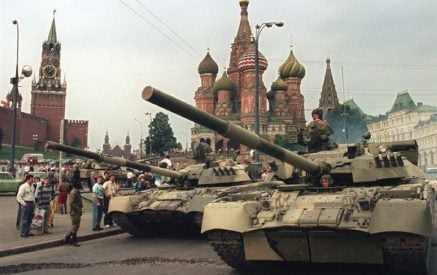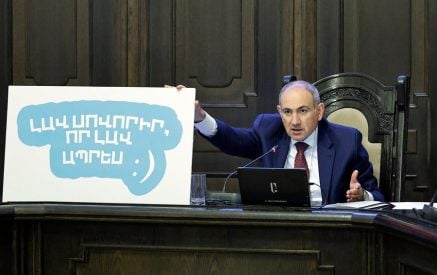The late leader leaves a tainted legacy and no evident successor.
By Birgit Brauer
Uzbekistan´s President Islam Karimov, who died on September 2 at age 78 of a cerebral haemorrhage, was one of the world’s most authoritarian and ruthless leaders. He had ruled his country with an iron fist for 27 years, since before Uzbekistan gained independence from the Soviet Union.
His regime was notorious for its atrocious human rights record and how it crushed all opposition, no matter how small. Karimov created a police state where thousands of people were imprisoned on politically-motivated and extremism-related charges. Torture in the criminal justice system was routine; during the cotton harvest, adults and children alike were made to do forced labour.
Read also
Unsurprisingly, Uzbekistan has been scraping at the bottom of almost every international ranking on human rights, freedom of the press and corruption for many years. Whether the country will now see any change for the better is open for speculation.
Karimov´s overarching need for control was limited to the here and now, and not any future beyond his death. He failed to cultivate an heir, at least to the public´s knowledge. Or perhaps he never thought the right moment had come to do so.
Like many dictators, he was probably well aware that naming a successor would have undermined his authority. It would have signaled readiness to cede power where there was none, and given unnecessary encouragement to eager contenders for the country´s top job.
Instead, he cemented his hold on power by routinely winning over 90 per cent of the vote in presidential elections, which have never been judged as free or fair by international observers. Karimov won his fourth consecutive term in March 2015.
A RETURN TO KREMLINOLOGY
Given the closed nature of Uzbekistan´s regime and the secrecy around the last days of the ailing Karimov, who fell ill on August 27, local and foreign analysts descended into old-school Kremlinology this past week.
Social media commentators were asking whether Uzbekistan´s TV and radio stations were already showing Tchaikovsky´s Swan Lake – in Soviet times an unmistakable sign of a death and change in leadership.
The president´s September 3 funeral in his hometown of Samarkand was a chance to catch a first glance of the post-Karimov inner circle of Uzbekistan´s political elite. But predicting who will take the reins in Central Asia´s most populous country based on attendance and who was standing where is likely to be imprecise. After all, Uzbekistan is in the process of its first transfer of power in over a quarter of a century.
It could at least be ascertained that Deputy Prime Minister Rustam Azimov, a possible contender who was rumoured to have been arrested, was present at the funeral, alive and well.
Many believe that long serving Prime Minister Shavkat Mirziyoyev, who was in charge of the funeral committee and greeted the foreign dignitaries, will likely be the future president. But if so, this may not lead to a change in style of government.
As provided for in the constitution, senate chairman Nigmatilla Yuldashev appears to have become the acting president upon Karimov´s demise, although this was by no means self-evident.
If the law continues to be followed, presidential elections should be held within three months.
RULERS FOR LIFE?
How the power vacuum in Uzbekistan will be filled in the coming weeks or months will not only be closely watched by its own citizens but also by the ageing autocrats in the neighbouring Central Asian republics and in Azerbaijan. They have similar systems of government, although generally – with the exception of Turkmenistan – with less repression.
Karimov´s relations with these Turkic countries as well as with Tajikistan were often touchy and at times downright tense. They were marked by personal competition, disagreement over regional water issues, border disputes and different approaches towards dealing with the growing radical Islamism in the region.
Yet they all share the dilemma of how to make their power last and how to pass it on.
Turkmenistan, whose regime is as secretive and brutal as Uzbekistan´s, underwent a change of leadership ten years ago when President Saparmurat Niyazov suddenly died. The formal constitutional succession scenario was blithely ignored.
The political elite, with the support of the State Security Council, came to an agreement through negotiations and moved on smoothly – for outside observers quite unexpectedly – to the next authoritarian regime under Gurbanguly Berdimuhamedov, until then health minister.
This is widely considered to be a model that could suit Uzbekistan´s elite.
Azerbaijan also has experience with the change of an authoritarian leader. President Ilham Aliyev took over from his father Heydar Aliyev after he fell ill. Ilham Aliyev was elected president in 2003 in a vote not considered free or fair.
A constitutional referendum now scheduled to be held in Azerbaijan on September 26 stands to enhance the post of the president and likely prolong the rule of the incumbent and his family.
In Uzbekistan, Karimov´s two daughters will probably not play a role in the succession, despite previous speculation. His eldest daughter Gulnara Karimova, once viewed as a potential successor, is thought to have been under house arrest since 2014. She was not seen at her father´s funeral.
Kazakhstan could be next in line for a transition. President Nursultan Nazarbayev came to power in 1989 like Karimov and is only two years younger. Discussions about his health and who may succeed him have been ongoing for close to 20 years.
Nazarbayev has shown no intention of stepping down from the presidency any time soon and has not favoured anyone in particular as his successor. His eldest daughter Dariga Nazarbayeva, currently deputy prime minister, is often mentioned. The formal rules of succession may not be applied when the time comes.
Tajikistan´s president Emomali Rakhmon, in office since 1994, held a constitutional referendum in May which will allow him to run for an unlimited number of terms. His family members control major businesses and hold government jobs.
By contrast, Kyrgyzstan is the most liberal country in the region, where popular protest ousted two presidents from office in 2005 and 2010. A new constitution strengthened the role of parliament. But there are growing calls for tinkering with the document, including by President Almazbek Atambayev himself.
Karimov´s shortcomings were many. He will particularly be remembered for the Andijan massacre in 2005, when government forces fired into a crowd of unarmed protesters killing several hundred. Western criticism and calls for an international investigation were rejected.
People in the region will also remember the landmines Karimov planted along the mountain borders with Kyrgyzstan and Tajikistan following reported incursions by Afghan-based Islamic militants in Uzbekistan in 1999. Dozens of Kyrgyz and Tajik civilians were killed as a result, many of them shepherds or women collecting firewood.
Nonetheless, in 2010, he allowed over 100,000 ethnic Uzbeks to flee from southern Kyrgyzstan into Uzbekistan to escape violent ethnic clashes.
And in spite of it all, he has also been valued in Uzbekistan and the Central Asian region for maintaining stability – although at a steep cost for the Uzbek people.
Birgit Brauer is IWPR´s Caucasus Editor. She was previously the longtime Central Asia correspondent of The Economist.
IWPR Global Voices No.795























































